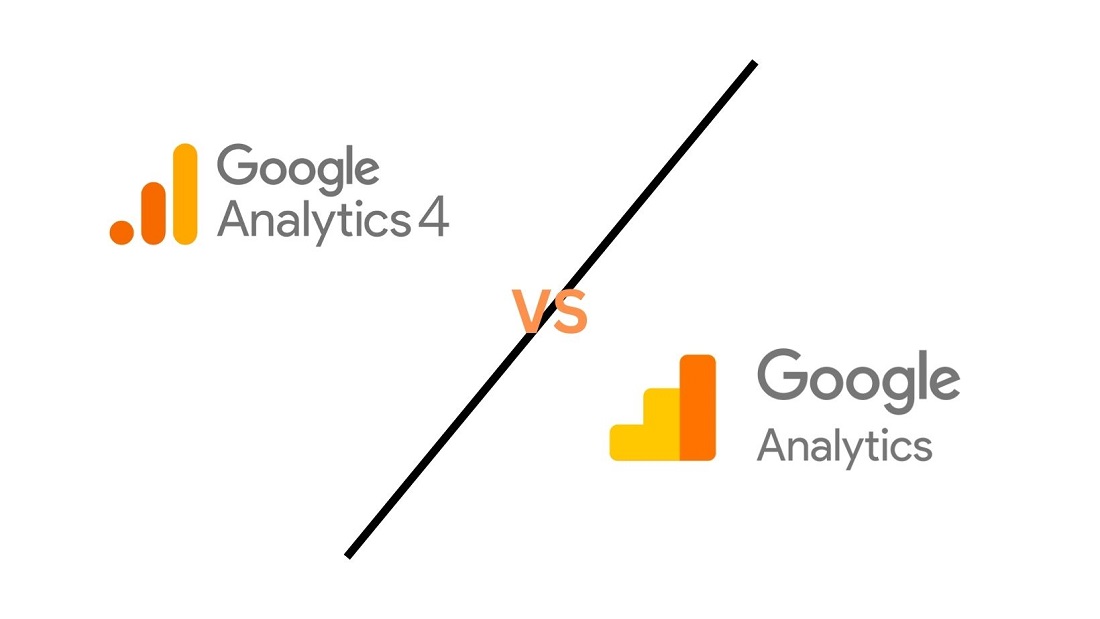What is Different Between Google Analytics 4 vs Universal Analytics
Google Analytics 4 (GA4) and Universal Analytics (UA) are two distinct web analytics platforms offered by Google. While they share some similarities. Google Analytics 4 (GA4) and Universal Analytics are two different versions of Google's analytics platform, each with its own set of features and capabilities. Here's a detailed comparison between the two:
Event-Driven Tracking:
- GA4: GA4 is designed with an event-driven tracking model. It places a strong emphasis on tracking user interactions and events, which allows for more comprehensive data collection and analysis.
- UA: Universal Analytics primarily uses pageviews and sessions as the core tracking elements. While events can be tracked in UA as well, they are not as central to the tracking model as they are in GA4.
User-Centric Tracking:
- GA4: GA4 focuses on user-centric tracking, where each user is assigned a unique user ID. This enables more accurate tracking of user journeys across devices and platforms.
- UA: Universal Analytics tracks users using cookies, which can sometimes lead to challenges in accurately attributing user interactions across different devices and browsers.
Data Retention and Sampling:
- GA4: GA4 offers more generous data retention policies, allowing data to be retained for up to 14 months. It also has reduced sampling, making it easier to work with large datasets without significant data loss.
- UA: Universal Analytics may have more stringent data retention policies, and it often relies on sampling for larger datasets.
Reporting and Analysis:
- GA4: GA4 provides more advanced machine learning and predictive analytics features. It also offers enhanced cross-platform and cross-device tracking, which helps in understanding user behavior better.
- UA: Universal Analytics has more traditional reporting features and may require additional configurations to achieve similar cross-platform tracking capabilities.
Audiences and Segments:
- GA4: GA4 offers more advanced audience-building capabilities, allowing you to create audiences based on user interactions and lifecycle stages.
- UA: While UA supports audience creation, it doesn't provide as many advanced audience-building features as GA4.
E-commerce Tracking:
- GA4: GA4 has enhanced e-commerce tracking capabilities, making it easier to track and analyze e-commerce data and customer journeys.
- UA: Universal Analytics also supports e-commerce tracking, but GA4 provides more advanced options.
Integration with Google BigQuery:
- GA4: GA4 has a more seamless integration with Google BigQuery, making it easier to export and analyze raw data in a data warehouse environment.
- UA: Universal Analytics can be integrated with Google BigQuery, but it may require additional setup and customization.
Cross-Domain Tracking:
- GA4: GA4 simplifies cross-domain tracking, making it easier to track user interactions across different domains or subdomains.
- UA: Universal Analytics also supports cross-domain tracking but may require more manual setup.
Migration and Compatibility:
- GA4: Google encourages users to set up new properties in GA4. While data can be imported from Universal Analytics, it's not a direct upgrade path.
- UA: Universal Analytics properties continue to be supported, but Google is emphasizing GA4 for future analytics needs.
Data Privacy and Compliance:
- Both GA4 and UA offer tools and features to support data privacy and GDPR compliance, but GA4 is designed with a more privacy-first approach.
Data Collection Model:
- Google Analytics 4 (GA4) uses an event-based data model, while Universal Analytics uses a session-based data model.
- GA4 focuses on user-centric tracking, making it more suitable for modern multi-device and multi-channel user journeys.
- Universal Analytics is session-based, which makes it less effective in tracking individual user behavior across multiple sessions.
It's important to note that Google is actively pushing users to transition from Universal Analytics to Google Analytics 4. While UA continues to function, new features and enhancements are likely to be rolled out primarily for GA4. Therefore, businesses should consider adopting GA4 to take full advantage of the latest analytics capabilities.












